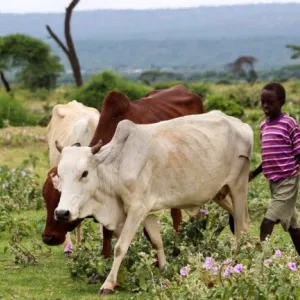Livestock supports the livelihoods of around 1 billion people in low- and middle-income countries (LMICs) (Thorne and Conroy 2017, Baltenweck et al. 2020). However, growth and productivity of the livestock sector in many LMICs are not keeping pace with the increasing demand for animal-source foods. Boosting the sector’s productivity is crucial for poverty reduction in LMICs, which continue to face multifaceted challenges and shocks that threaten the sustainability of food systems. This, in turn, requires reliable livestock data for informing livestock policies and investments. However, there is a significant gap in the quality and reliability of livestock data, which inhibits evaluations of the livestock sector’s role in livelihoods and national economies and therefore impedes evidence-based livestock policies and investments.
Livestock statistics in most LMICs rely on self-reported, survey-based measures. However, respondents may face various challenges in accurately reporting livestock ownership. Despite the large potential of the livestock sector to drive poverty reduction efforts and economic growth in many LMICs, including Ethiopia (the focus of our research), these data gaps are likely to undermine our understanding of the contribution of the livestock sector.


